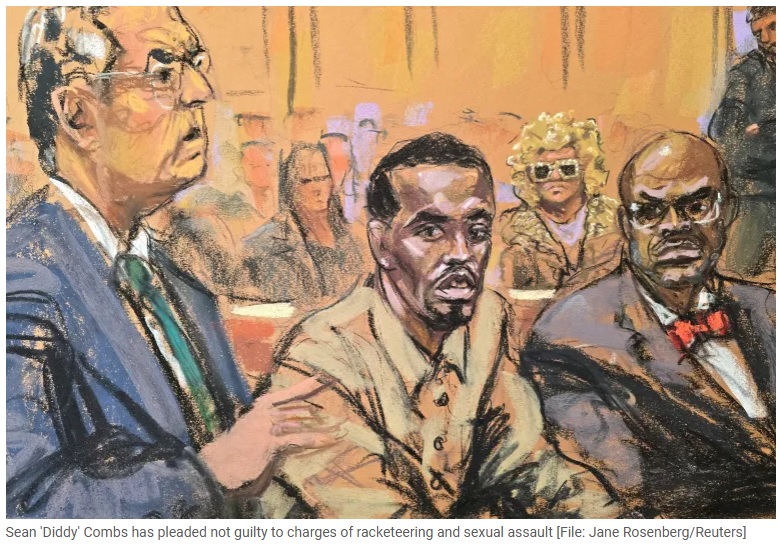Federal judge says free speech rights of potential witnesses outweigh concerns of defendant in criminal trial
Judge Denies Gag Order Request
On Friday, a federal judge rejected Sean “Diddy” Combs’ request to silence potential witnesses in his criminal sex trafficking case. Combs’ legal team argued that media interviews and public statements could harm his right to a fair trial.
Diddy Seeks to Silence Witnesses
Combs sought a gag order after more than a dozen civil lawsuits accused him of sexual assault. One witness gave an interview after appearing before the grand jury. Combs’ team claimed public statements could interfere with the case.
Judge Arun Subramanian disagreed, stating that potential witnesses’ First Amendment rights took precedence. He pointed out that restricting speech could silence people not involved in the case. The judge emphasized that less restrictive measures should be explored first.

Combs Pleads Not Guilty
The ruling follows Combs’ legal team filing a new motion for his release from jail. They argue new evidence weakens allegations that Combs forced women into drug-fueled sex acts. Combs maintains his innocence and denies all accusations.
Combs’ lawyers say the new evidence disproves witness tampering claims and weakens the prosecution’s case. They also argue that the government’s core allegation—sex trafficking his former girlfriend—has no merit.
Bail Request and Jail Conditions
Along with the gag order motion, Combs’ team proposed a new bail package. They suggested a $50 million bond co-signed by his family. They also proposed home detention with GPS monitoring and 24/7 private security. The new proposal limits visitors to family and lawyers.
Combs’ lawyers also criticized conditions at the Metropolitan Detention Center. They claimed jail officers confiscated his pens, disrupting his ability to prepare for trial. They said the officers ransacked his notes and disorganized his work product.
Combs faces a prolonged legal battle. His defense team continues to fight both the charges and the restrictions imposed on him. The case raises important questions about the rights of defendants and the free speech of potential witnesses.
Our Visitor






 Users Today : 33
Users Today : 33


